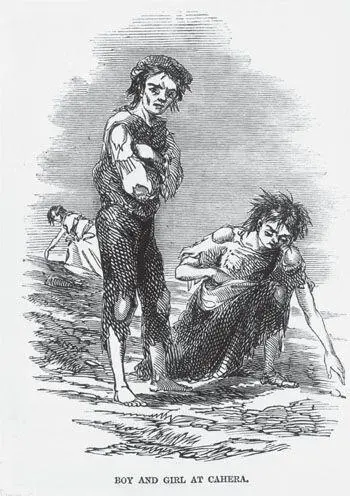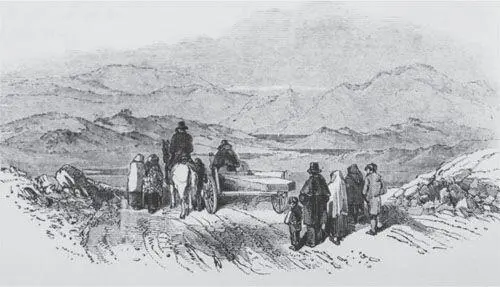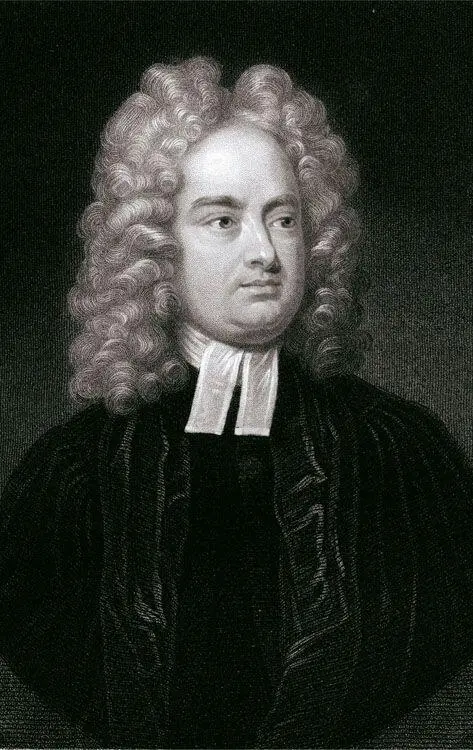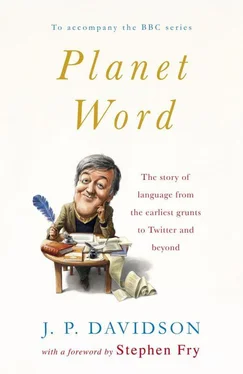People in Skibbereen died in such huge numbers and so fast that there weren’t enough people alive to bury them. Pits were dug near the ruins of the old Abbeystrewery Franciscan friary, and up to 10,000 coffin-less bodies were buried in the mass grave.
Heated debate is still in full swing over whether the Great Hunger was the result of a natural catastrophe worsened by the British government’s inaction or a form of genocide. It’s a historically and politically charged issue. What is without question is that the famine was a huge turning point for Ireland. Indeed, historians talk about Irish history in terms of the pre-famine and post-famine years.
The famine hit rural areas hardest and in particular the Irish-speaking areas of western Ireland. In 1835 there were an estimated 4 million native Irish speakers. This number had fallen to 2 million by 1851 and to 680,000 by 1891. Those who hadn’t been killed by the famine emigrated or chose to speak English in preparation for finding employment abroad or in the cities.
We need to delve a bit further back into history here. The Irish language grew out of the Proto-Celtic language which was spoken all over western mainland Europe from around the fifth century BC. Groups of Celtic-speakers migrated to Ireland around the fourth century BC, where a form of Celtic known as Goidelic (or Gaelic) developed; fragments of primitive Irish are known from inscriptions in the Ogham alphabet, etched into stone monuments in southern Ireland around the fourth century AD. After Ireland’s conversion to Christianity and the introduction of the Roman alphabet in the sixth century, the Golden Age of Old Irish began. This evolved into Middle Irish, which then spread through Ireland and into Scotland and the Isle of Man. Modern Irish, with the assimilation of Old Irish, Norse, Norman and Old English, emerged around the twelfth century. In Scotland it became Scottish Gaelic; in the Isle of Man, the Manx language.

James Mahony’s drawings recorded the desperation of the Irish during An Gorta Mór

Another group of early Celtic-speakers migrated to the British mainland around the same time as Goidelic was developing in Ireland. The language of this group, which settled in southern England and Wales, grew into a type of Celtic known as Brythonic (or British); this provided the basis for Cornish, Welsh and the now extinct Cumbric; and a movement of some of these settlers from southern England across the Channel to Brittany around AD 600 led to the development of Breton there. As Old and Middle English developed from the languages of the invading Anglo-Saxons and then the Normans, the Brythonic Celtic languages were driven into Wales and the south-west.
Thus we have Modern Irish being spoken by almost the entire population of Ireland in the twelfth century. Over the next few centuries there were attempts by the Normans and then by the English to control the territories of the Irish lords, and by the beginning of the sixteenth century there was an English-controlled territory on the east coast, with Dublin as its centre, known as the Pale. Here the English language predominated. Outside this area — beyond the Pale — were the Gaelic Irish, who maintained their own language and laws. The English called them ‘His Majesty’s Irish enemies’.
The assault on the Irish and their language began in earnest in the mid sixteenth century when Henry VIII and subsequent monarchs confiscated land and replaced the Irish Catholic landowners with settlers from England and Scotland. The Plantations, as it came to be known, was a ruthless policy of colonization. The Crown took over large swathes of land in the south-west province of Munster and in the northern province of Ulster — the most remote and Gaelic of all the Irish territories. As the Irish tongue shrank westwards and the Irish-speaking ruling classes disappeared, Gaelic Irish culture was sidelined, and a new English-speaking elite dominated the politics of the country. English was the language of parliament, law and trade and, after the introduction of the National Schools system in the 1830s, the language of the classroom as well.

Jonathan Swift recommended the Irish sell their children for food
It’s easy to forget that some of the English language’s most famous writers were from this Anglo-Irish elite. The satirist and essayist Jonathan Swift was born in Dublin in 1667. His Modest Proposal (for Preventing the Children of Poor People in Ireland Being a Burden to Their Parents or Country, and for Making Them Beneficial to the Public) recommends that Ireland’s poor escape their poverty by selling their children as food to the rich: ‘I have been assured by a very knowing American of my acquaintance in London, that a young healthy child well nursed is at a year old a most delicious, nourishing, and wholesome food …’ Oscar Wilde was born in Dublin in 1854, at the end of the Great Hunger. As was George Bernard Shaw, two years later.
The Great Hunger virtually killed off the already struggling native language, but it hardened resentment towards the British and became a rallying point for nationalist movements. The spearheading of a Gaelic revival came from the very section of Ireland’s society which nationalists blamed for killing off the language in the first place — English-speaking Protestants. Douglas Hyde, academic, passionate supporter of the Irish language and future President of Ireland, was the Anglo-Irish son of a Church of Ireland rector. He taught himself to speak and write Irish, joined the Society for the Preservation of the Irish Language and penned dozens of Irish verses. In 1889, he wrote: ‘If we allow one of the finest and richest languages in Europe, which, fifty years ago, was spoken by nearly four millions of Irishmen, to die without a struggle, it will be an everlasting disgrace and a blighting stigma upon our nationality.’
Hyde helped set up the Irish National Literary Society with W. B. Yeats in 1892 and at one of its first meetings concluded a lecture entitled ‘The Necessity for De-anglicising the Irish People’ with a literary call to arms:
I would earnestly appeal to everyone, whether Unionist or Nationalist … to set his face against the constant running to England for our books, literature, music, games, fashions and ideas. I appeal to everyone … to help the Irish race to develop in future upon Irish lines … because upon Irish lines alone can the Irish race once more become what it was of yore — one of the most original, artistic, literary, and charming people of Europe.
In 1893, Hyde helped to found the Gaelic League (Conradh na Gaeilge). Its aims were to preserve spoken Irish, restore it as the country’s first language and encourage the revival and creation of literature in Gaelic.
The League faced an uphill battle to convince Ireland’s dwindling number of native speakers that there was any point in saving the language. It was helped by the growing strength of the nationalist movement, which saw the speaking of Irish as a statement of national pride and an act of defiance against the English. Although the League was non-political, it attracted future nationalist leaders. Patrick Pearse, one of the Easter Uprising leaders, joined when he was sixteen and became editor of its newspaper. The Irish Republic’s founding father, Eamonn de Valera, met his wife Sinead at the League, where she was teaching Irish. The Irish-speaking parents of Michael Collins, the Sinn Féin leader, had insisted on speaking English to their children so they would ‘get on’ and find good jobs in an English-speaking world. Michael Collins was passionate about the League.
Читать дальше















